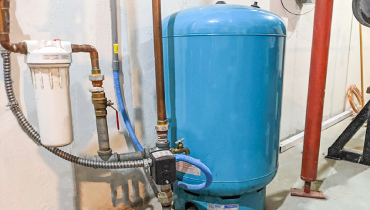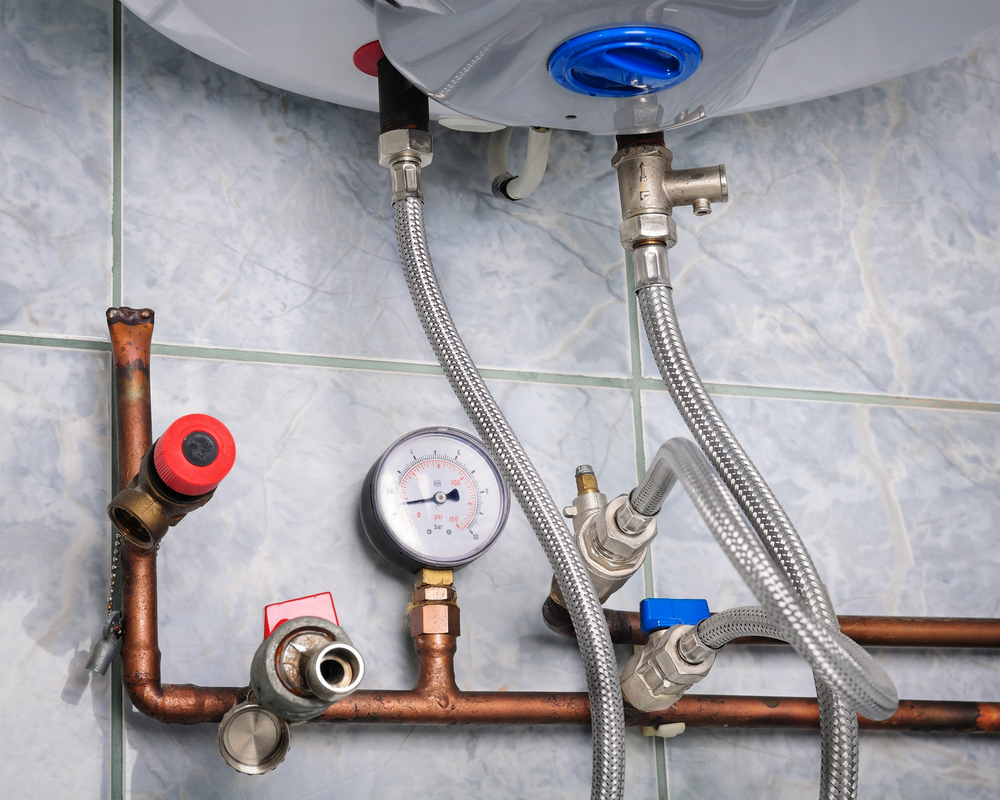Useful Tactics for Addressing Low Water Pressure in Your Home
Useful Tactics for Addressing Low Water Pressure in Your Home
Blog Article
Listed here underneath you can find additional outstanding facts concerning 10 Reasons for Low Water Pressure in Your House.

Low tide stress in your home can be an irritating issue, affecting everything from showering to washing recipes. If you're experiencing weak water flow, there are numerous possible reasons and services to discover. In this overview, we'll talk about usual factors for low water stress and sensible steps to attend to the concern efficiently.
Introduction to Low Water Stress
Low tide stress occurs when the flow of water from your faucets, showers, and various other components is weak than normal. This can make day-to-day jobs extra challenging and much less reliable. Understanding the reasons for low water pressure is important to discovering the ideal option.
Typical Reasons For Low Water Stress
Pipeline Obstructions
Gradually, pipes can become clogged with natural resource, debris, or debris, restricting the flow of water. This is a common concern in older homes with galvanized steel pipes.
Corrosion
Deterioration within pipes can lead to leakages and decreased water stress. Rust buildup can restrict water flow, particularly in aging plumbing systems.
Faulty Stress Regulatory Authorities
Stress regulators are responsible for preserving consistent water pressure in your home. If they malfunction, it can result in low water pressure or uneven flow throughout your house.
Municipal Water Issues
In some cases, the trouble lies outside your home. Community water system problems, such as main line leakages or upkeep job, can momentarily lower water stress in your location.
Just How to Detect Low Tide Stress
Inspecting Faucets and Fixtures
Start by checking the water pressure at different faucets and components throughout your home. If the problem is isolated to specific locations, it might show local problems.
Inspecting Pipelines
Check visible pipelines for indications of leakages, deterioration, or blockages. Pay attention to any kind of uncommon noises, such as banging or rattling pipelines, which might suggest issues within the plumbing system.
Consulting with a Plumber
If you're incapable to identify the reason for low water stress, think about hiring a specialist plumber to carry out an extensive inspection. They can recognize underlying issues and recommend proper solutions.
Do It Yourself Solutions to Fix Low Water Stress
Cleaning Aerators and Showerheads
Natural resources can accumulate in aerators and showerheads, minimizing water flow. Get rid of and cleanse these components consistently to improve water stress.
Flushing Hot Water Heater
Debris accumulation in the hot water heater can restrict circulation and minimize performance. Flushing the container occasionally aids get rid of debris and preserve ideal efficiency.
Examining Stress Regulatory Authority
Make certain that the stress regulator is operating properly. Readjusting or replacing the regulatory authority can assist restore correct water pressure throughout your home.
Clearing Up Clogs in Pipeline
For small blockages, attempt using a plumbing serpent or chemical drainpipe cleaner to clear obstructions in pipelines. Beware when using chemicals and follow security standards.
When to Call a Specialist Plumber
If DIY efforts fall short to deal with the problem or if you believe significant plumbing issues, it's finest to look for aid from a licensed plumber. They have the know-how and devices to resolve intricate concerns securely and successfully.
Preventive Measures to Keep Water Pressure
Routine Upkeep
Schedule routine upkeep for your plumbing system to prevent concerns such as deterioration, leaks, and blockages. Resolving minor problems early can assist stay clear of even more substantial fixings later.
Installing a Pressure Booster
Take into consideration setting up a pressure booster pump to improve water stress in areas with regularly low circulation. This can be particularly useful for multi-story homes or homes with high-demand fixtures.
Surveillance Water Usage
Bear in mind water use practices and stay clear of overtaxing the plumbing system. Easy adjustments, such as shocking showers and washing lots, can help maintain sufficient water stress.
Verdict
Managing low tide stress can be irritating, yet recognizing the underlying reasons and applying ideal solutions can recover optimum circulation throughout your home. Whether it's cleaning aerators, inspecting pipelines, or consulting with a plumber, taking proactive actions can make sure a consistent supply of water for your daily needs.
FOUR WAYS TO FIX LOW WATER PRESSURE NOW
Turning on a shower or faucet only to find the water comes out in a sad, slow drizzle is never a good feeling. How exactly are you supposed to wash a pan or take a quick shower when it takes 10 minutes just to rinse off a little soap? The good news is that when your water pressure is bad, there's always a cause: typically one that can be easily fixed. Here are some of the most common causes of low pressure and what you can do to fix the issue:
DEBRIS AND MINERAL DEPOSIT BUILDUPS
If you notice low water pressure from just one or two of the fixtures in your house, the problem likely has to do with debris buildup. Water is full of minerals and other debris, all of which can accumulate in your pipes and on your fixtures. This can cause a blockage that affects how much water flows through. To fix this, try filling a small plastic bag with white vinegar, and use a rubber band to hang it around your showerhead or faucet. Let the head of the fixture soak for a few hours, and the vinegar should loosen the deposits.
WATER LEAKS
Leaks are another common cause of low water pressure. If water is flowing out of your plumbing through a hole or crack before it can reach your fixture, the pressure coming out of the faucet or showerhead will be lower. A plumbing professional is your best bet for finding and repairing a leak in your water supply pipes.
Leaks are another common cause of low water pressure. If water is flowing out of your plumbing through a hole or crack before it can reach your fixture, the pressure coming out of the faucet or showerhead will be lower. A plumbing professional is your best bet for finding and repairing a leak in your water supply pipes.
FOUR WAYS TO FIX LOW WATER PRESSURE NOW
Turning on a shower or faucet only to find the water comes out in a sad, slow drizzle is never a good feeling. How exactly are you supposed to wash a pan or take a quick shower when it takes 10 minutes just to rinse off a little soap? The good news is that when your water pressure is bad, there's always a cause: typically one that can be easily fixed. Here are some of the most common causes of low pressure and what you can do to fix the issue:
DEBRIS AND MINERAL DEPOSIT BUILDUPS
If you notice low water pressure from just one or two of the fixtures in your house, the problem likely has to do with debris buildup. Water is full of minerals and other debris, all of which can accumulate in your pipes and on your fixtures. This can cause a blockage that affects how much water flows through. To fix this, try filling a small plastic bag with white vinegar, and use a rubber band to hang it around your showerhead or faucet. Let the head of the fixture soak for a few hours, and the vinegar should loosen the deposits.
WATER LEAKS
Leaks are another common cause of low water pressure. If water is flowing out of your plumbing through a hole or crack before it can reach your fixture, the pressure coming out of the faucet or showerhead will be lower. A plumbing professional is your best bet for finding and repairing a leak in your water supply pipes.
Leaks are another common cause of low water pressure. If water is flowing out of your plumbing through a hole or crack before it can reach your fixture, the pressure coming out of the faucet or showerhead will be lower. A plumbing professional is your best bet for finding and repairing a leak in your water supply pipes.
A VALVE ISSUE
If you have low water pressure throughout your home, check your main shut-off valve to make sure it's completely open. You may also want to see if there's a pressure-reducing valve installed. If there is, have a plumber help you adjust the settings to get the pressure you're looking for.
OTHERS USING WATER
Believe it or not, your low water pressure could be caused by your neighbors. If you notice low pressure at certain times of day, it may be because you and the people living next to you have similar schedules - when everyone is showering at the same time, the pressure will be lower in every home. Low pressure throughout the neighborhood may also be caused by an issue with your municipal water supply. If that's the case, call the supplier to see if they're working on the issue.
https://www.rotorooter.com/blog/water-leaking/low-water-pressure-fixes/

I'm just very curious about Dealing with Low Water Pressure in Your Home and I hope you liked my entry. Kindly set aside a second to promote this entry if you enjoyed it. Thanks so much for taking the time to read it.
Hire A Pro Report this page